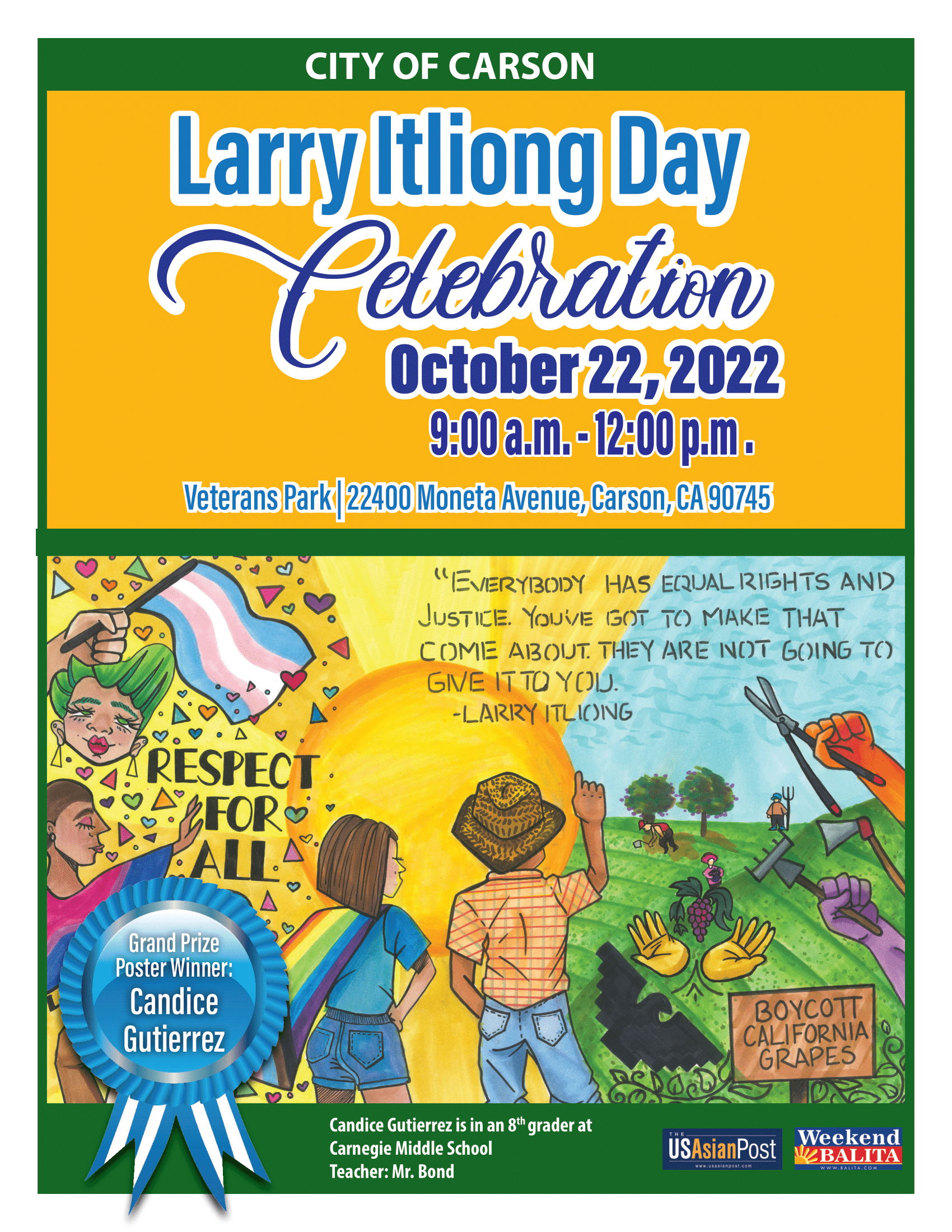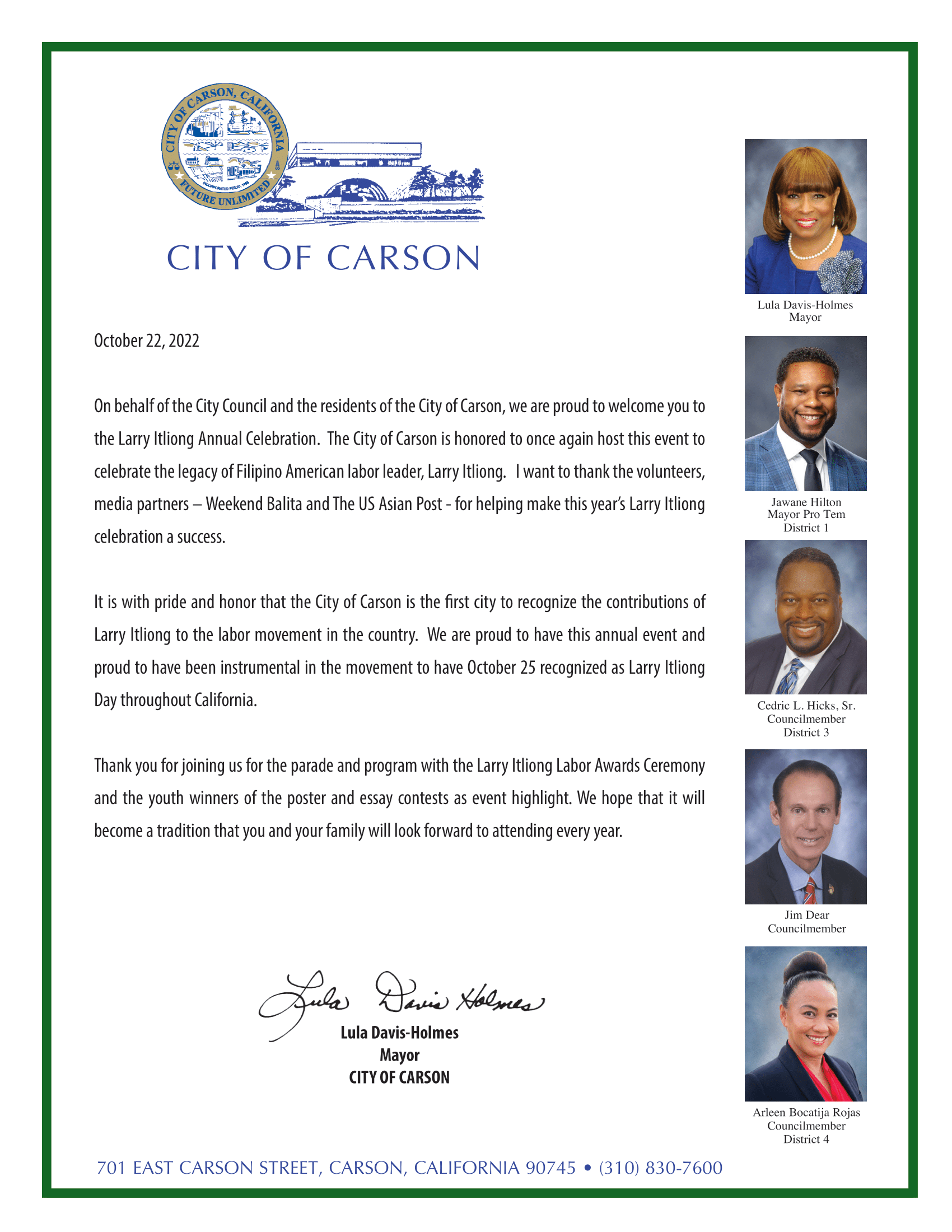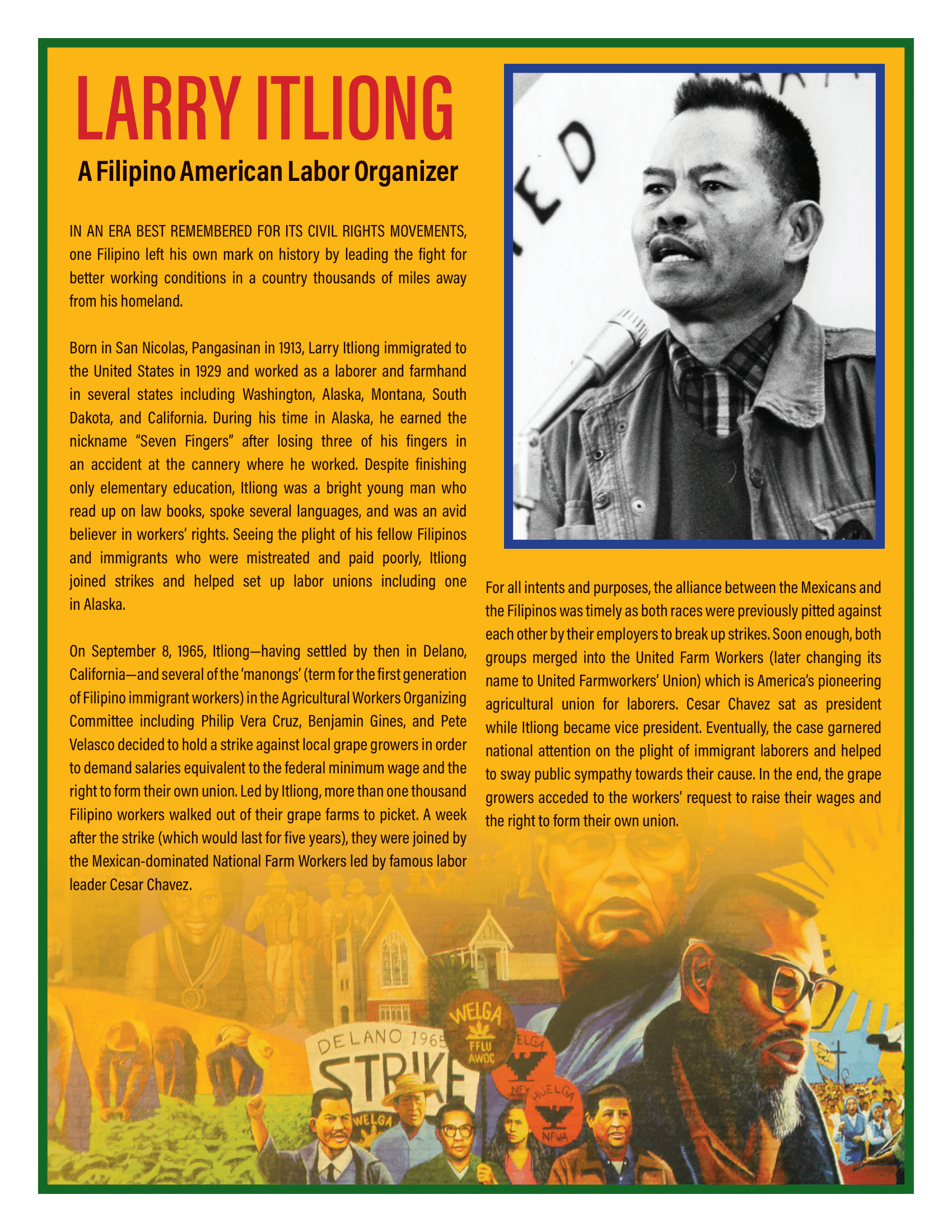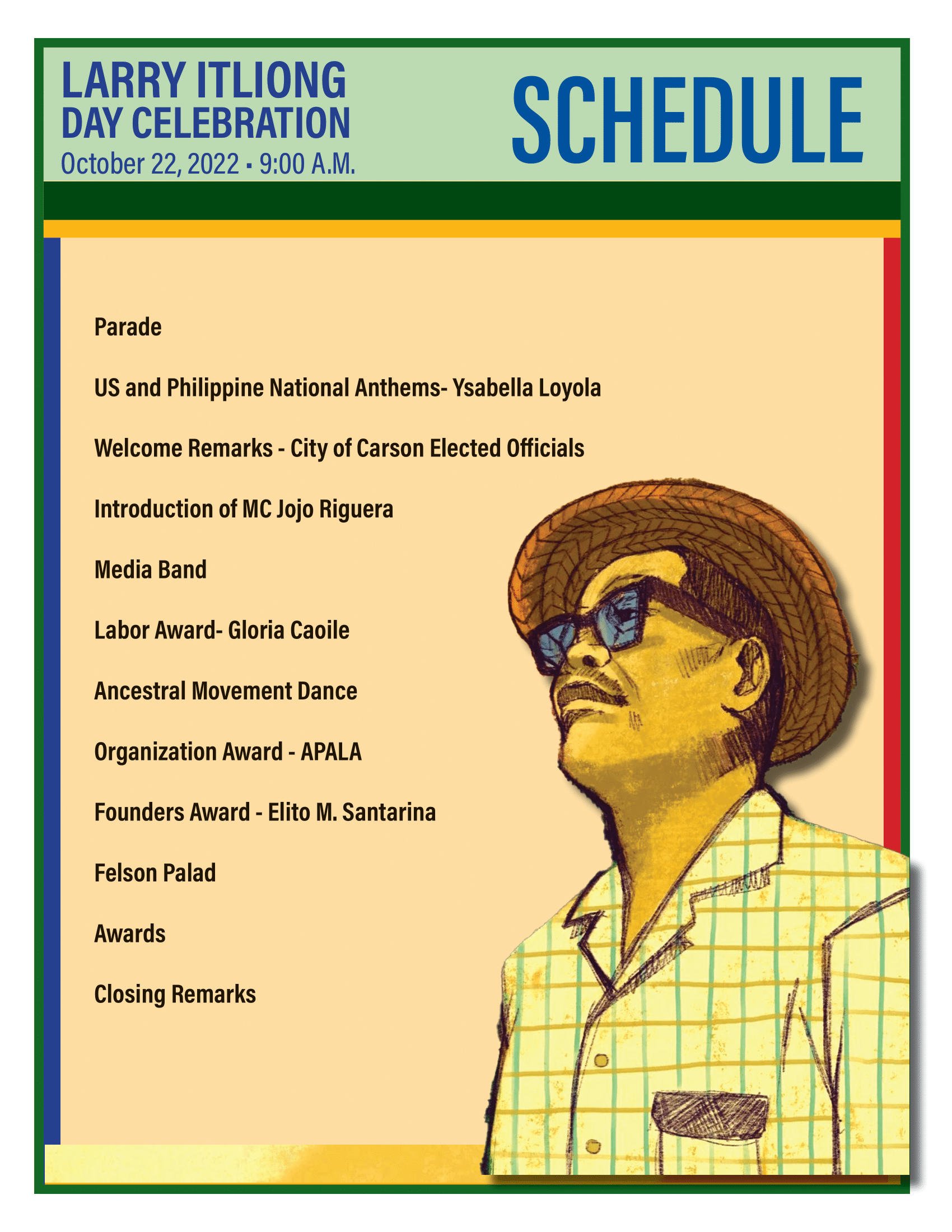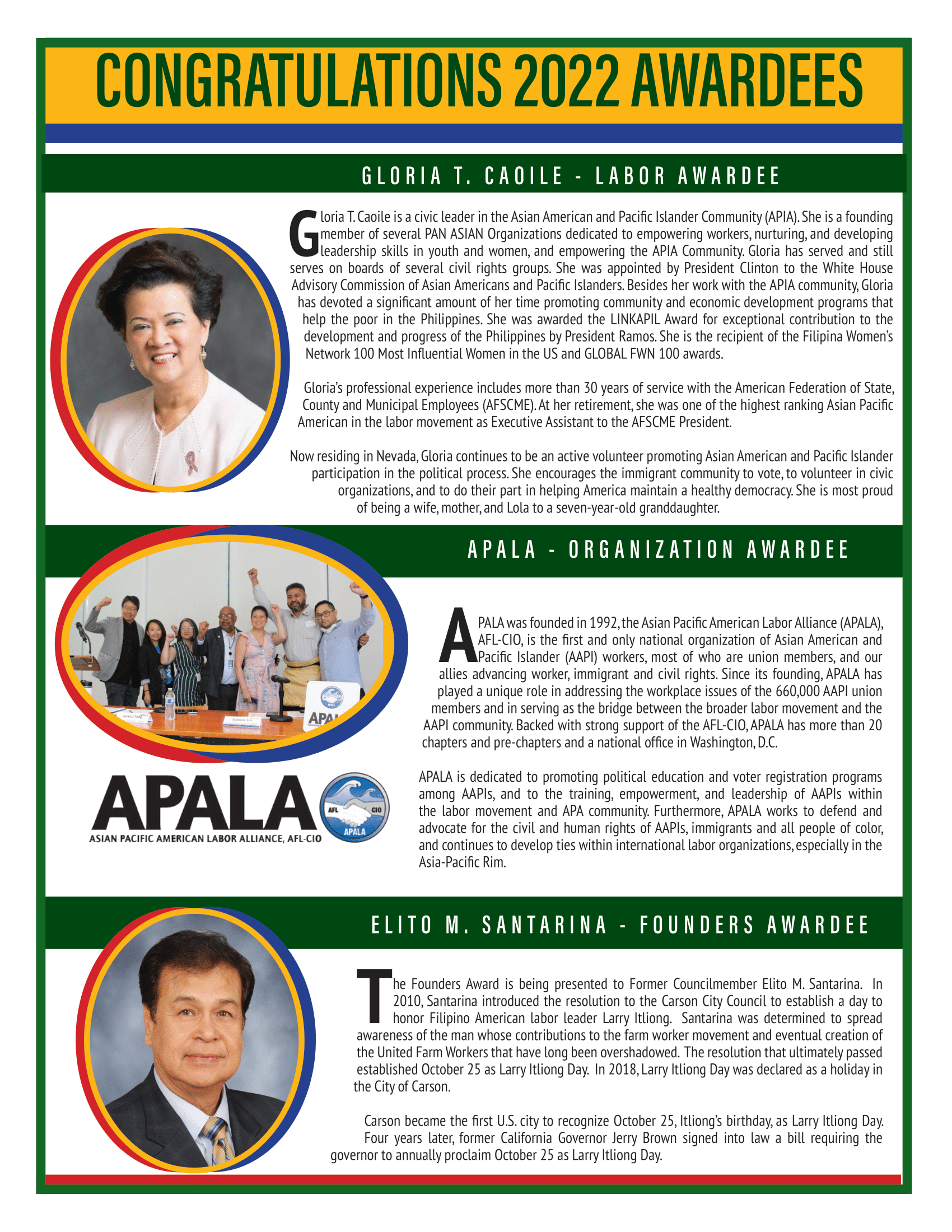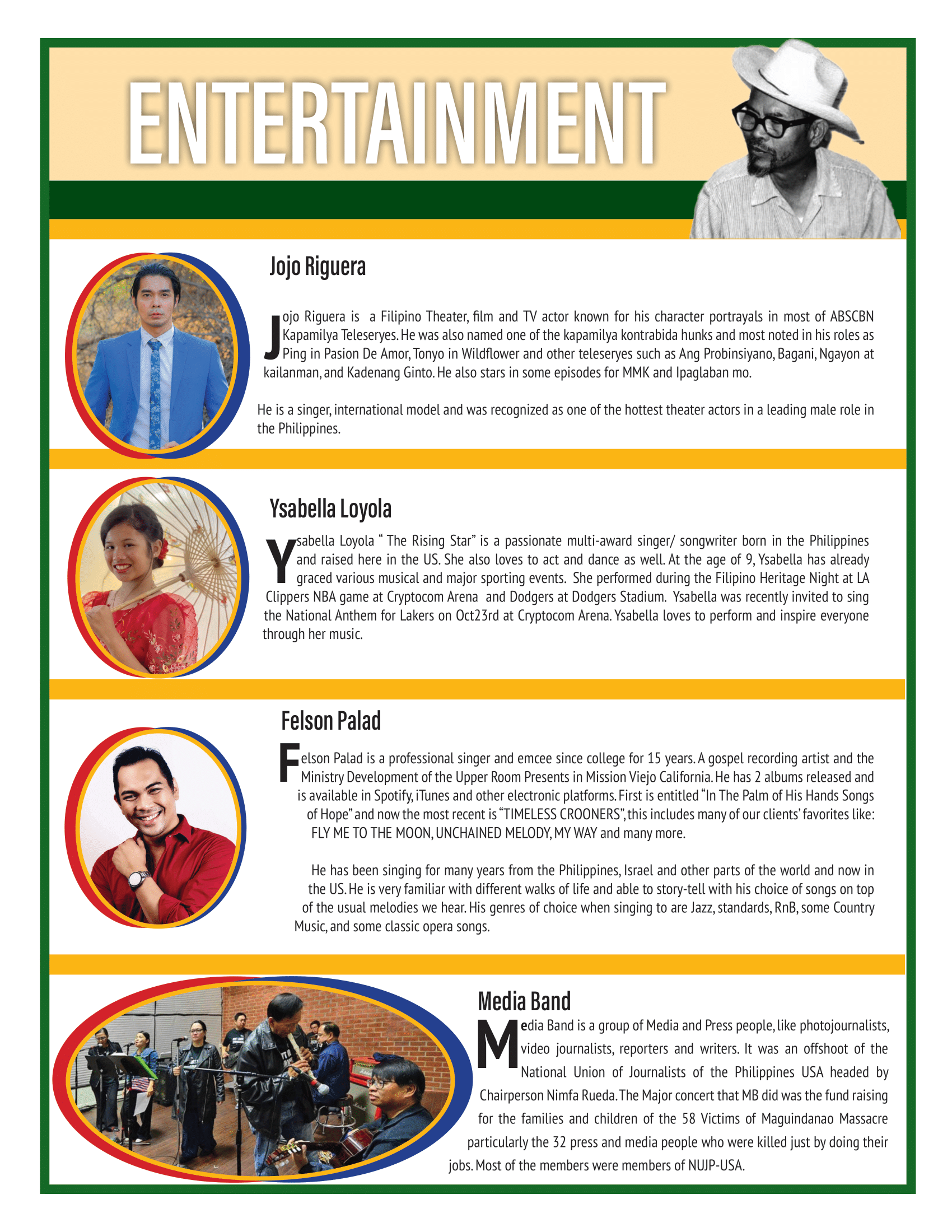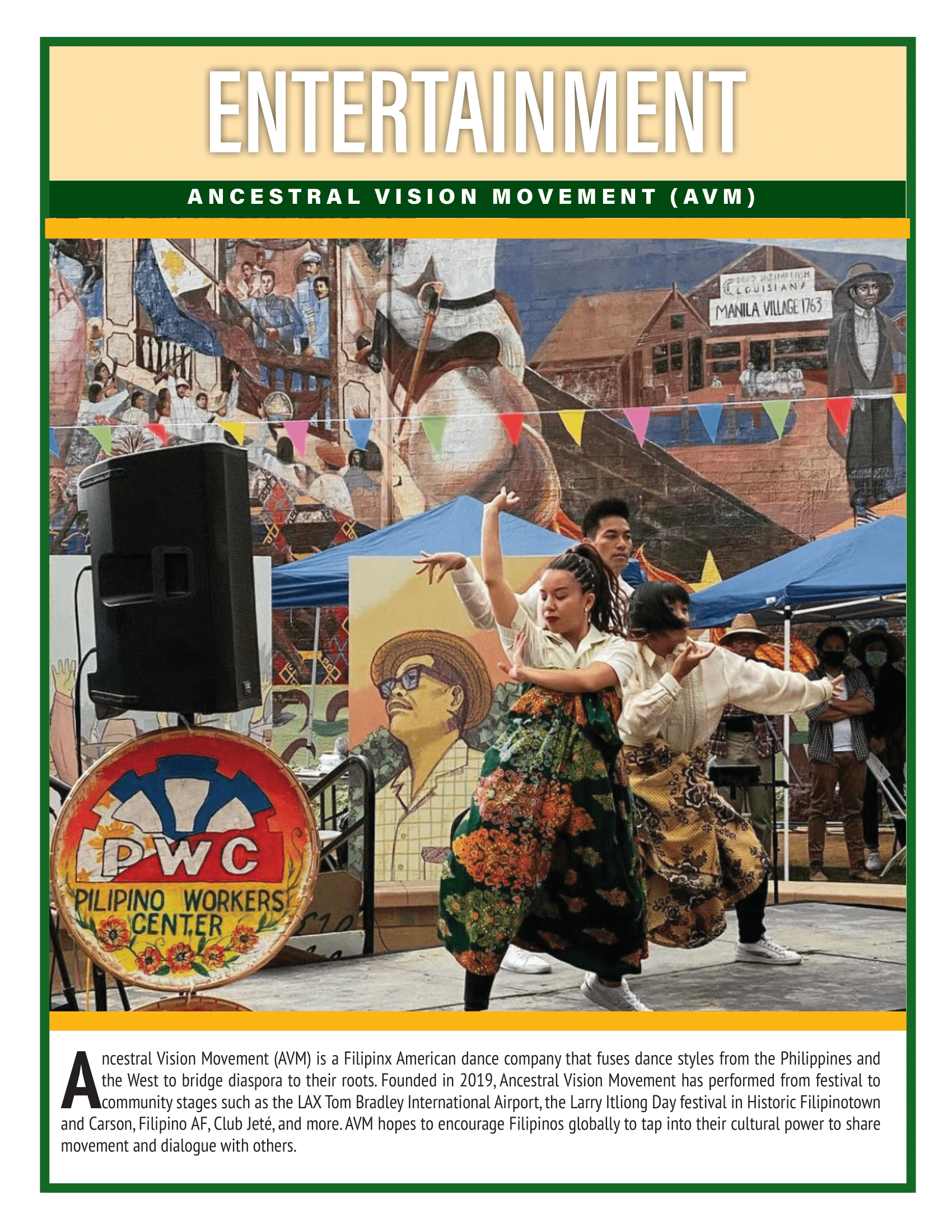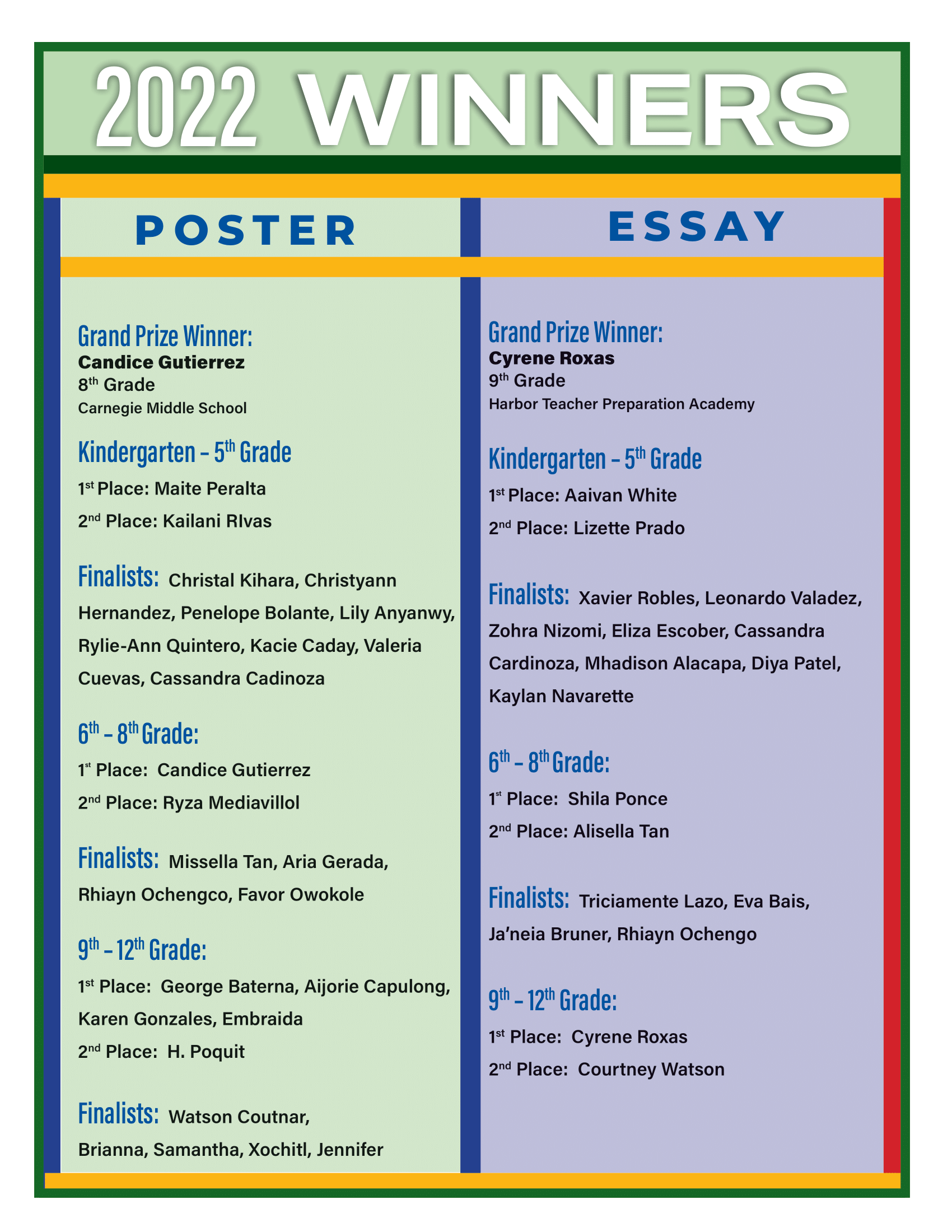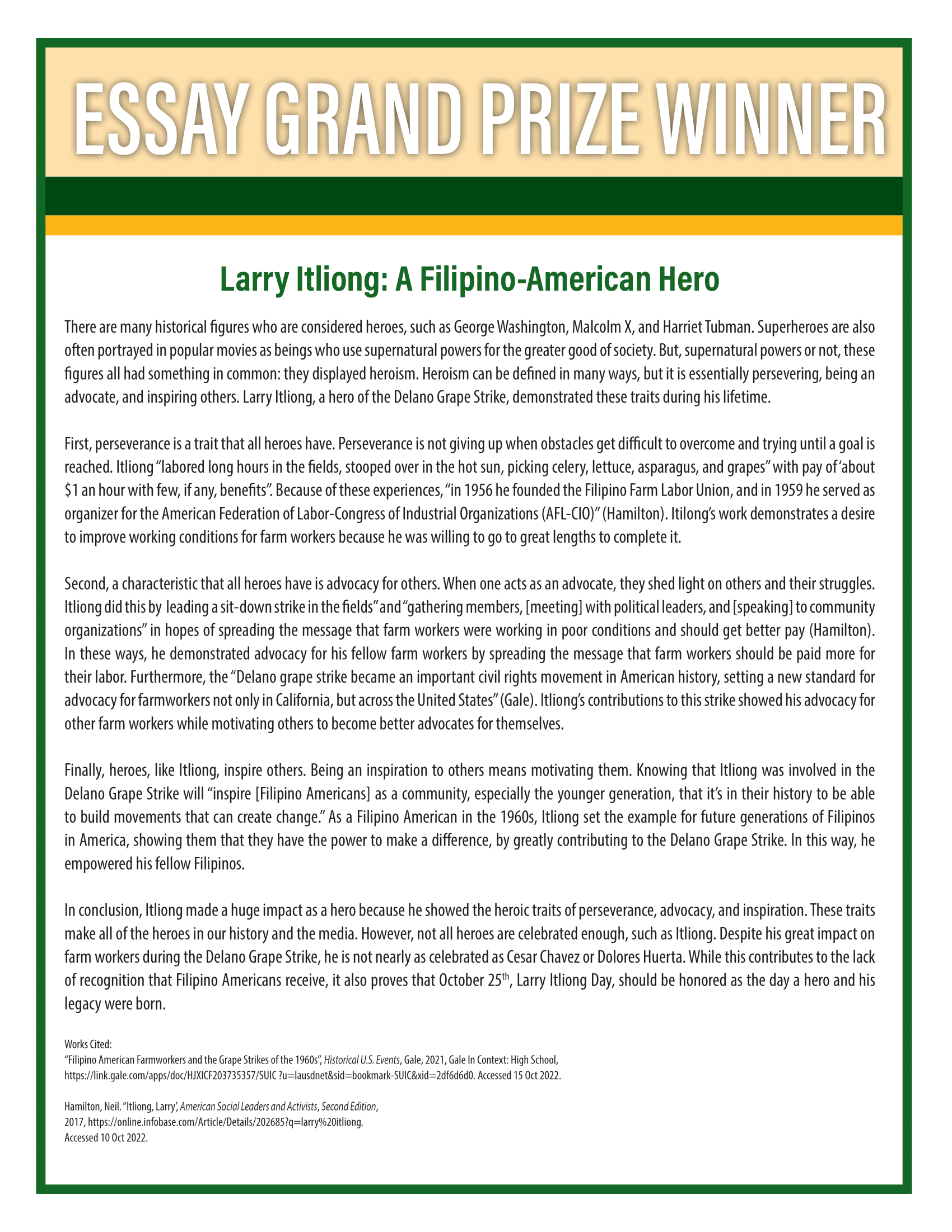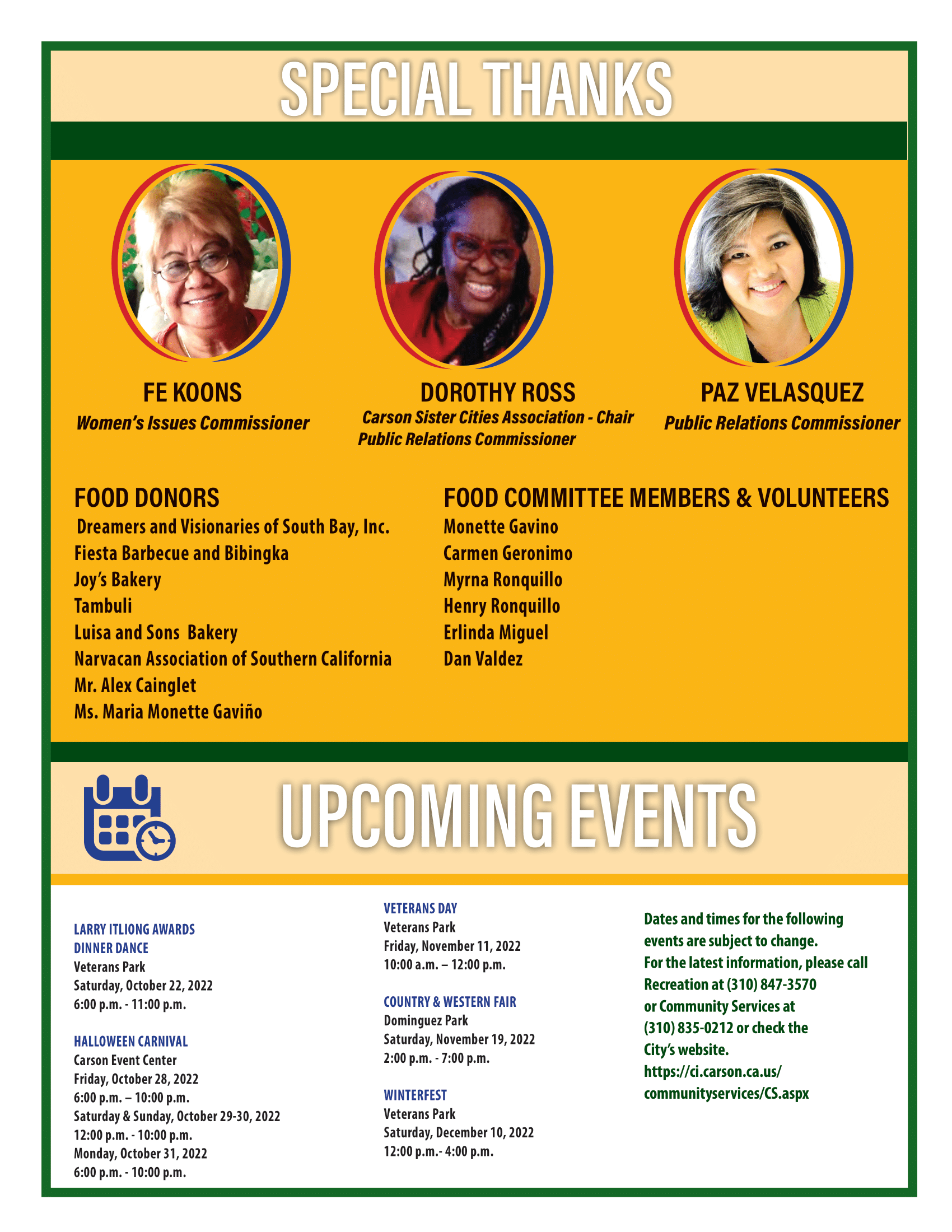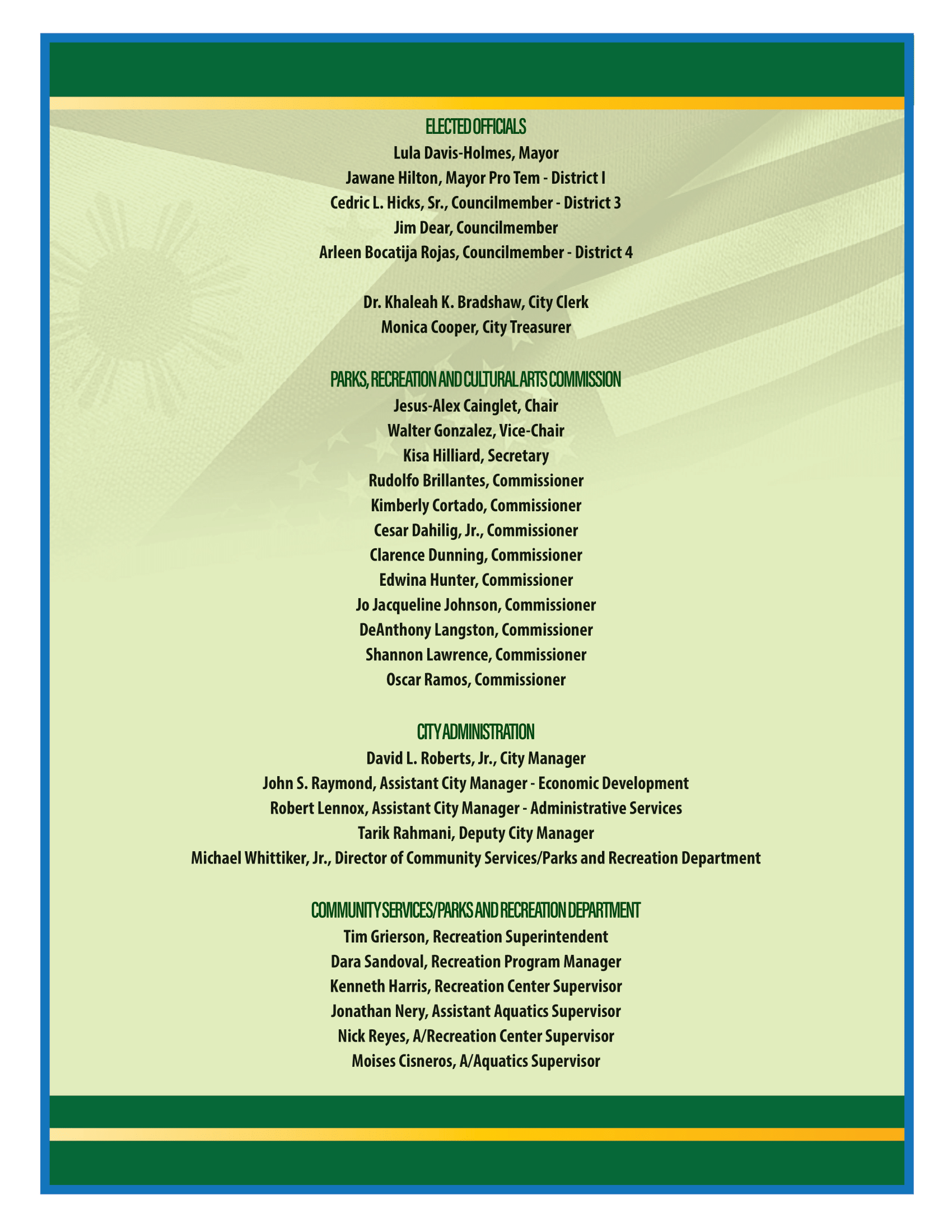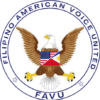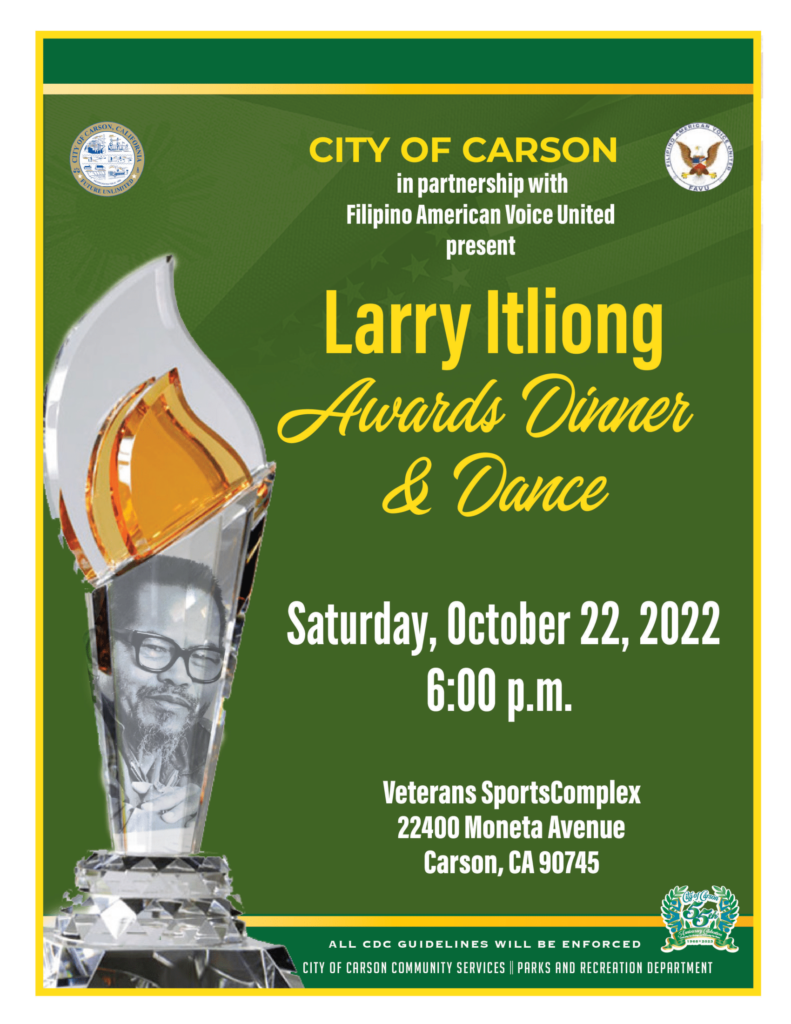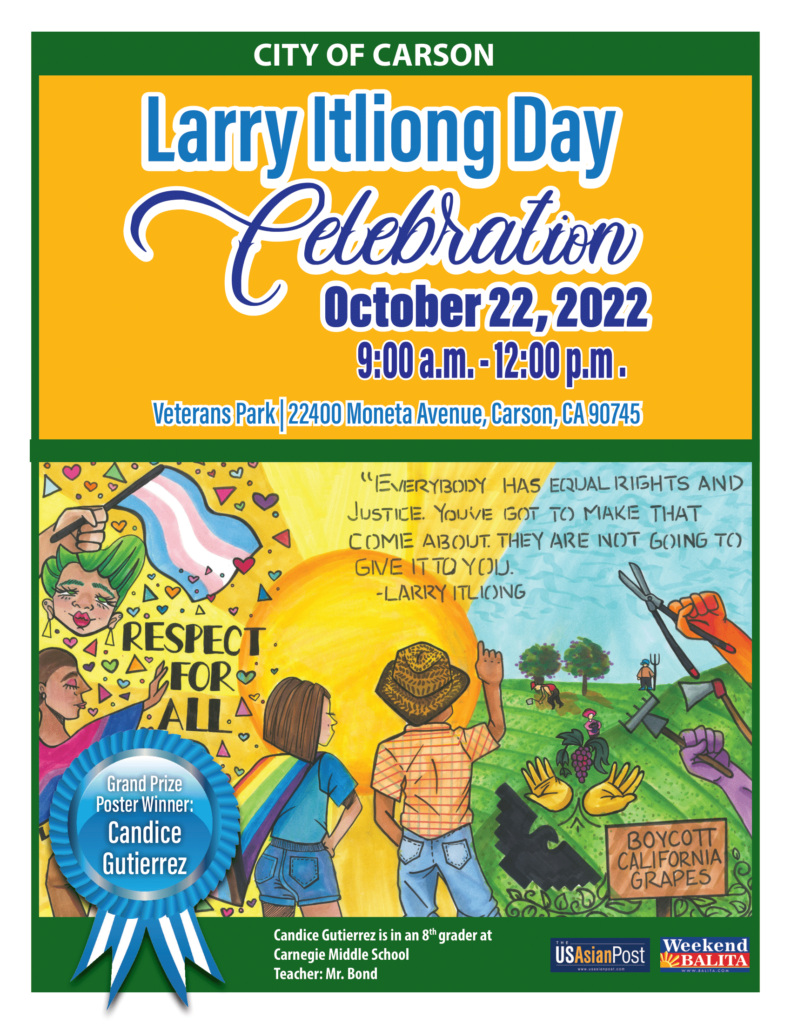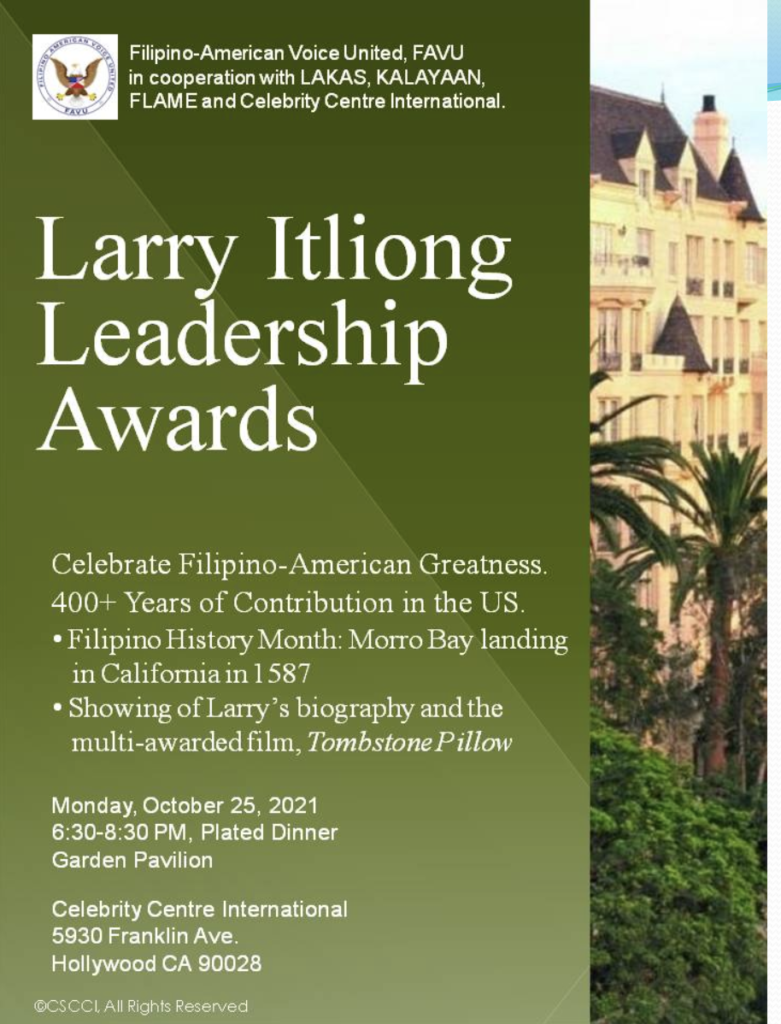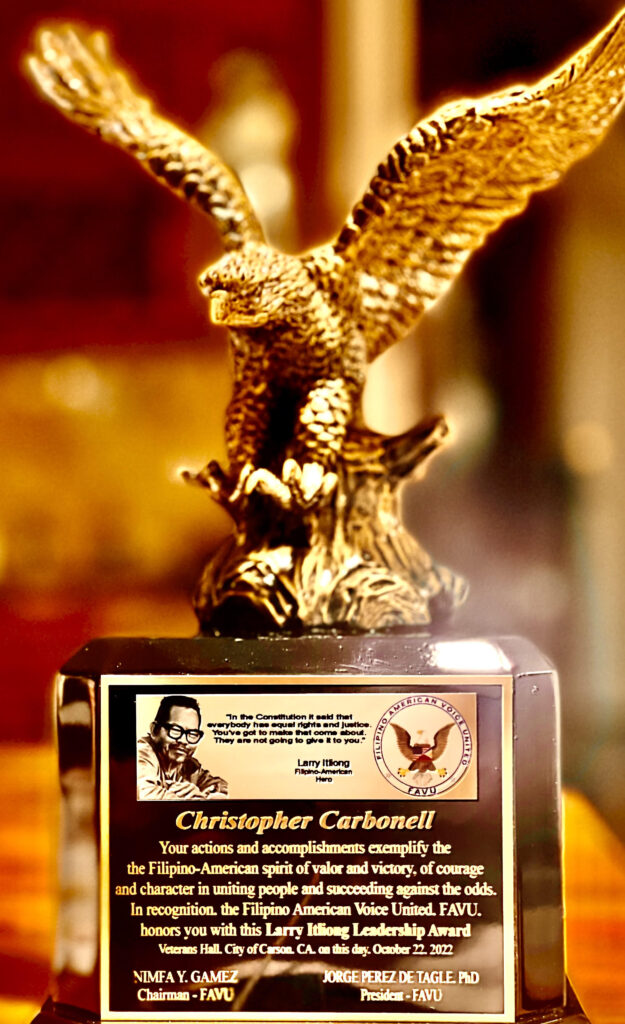
Many have heard of the Mexican-American leader Cesar Chavez. But few are aware of the Filipino-American Larry Itliong; the union organizer and civil rights leader who invited Chavez to join the 1965 Delano Grape Strike. This was a triple grand slam of organizing Filipino seasonal workers, partnering with Mexican laborers, and unifying the American people in boycotting California grapes. It was a historic victory in 1970, that Robert Kennedy acknowledged, given its milestone impact in the US and around the world.
In partnership with the City of Carson, CA; the Filipino American Voice United, FAVU, recognizes the valor and courage of three FIlipino Americans. Leaders who served above self, fought against the odds, and achieved victory for their community and the country. This is the essence of the Larry Itliong Leadership Awards, the “Larry Award” of 2022, that was given to:
Elito Santarina, City of Carson, California,
Rudy Asercion, San Francisco, California,
Christopher Carbonell, New York City, New York.
The Larry Awards celebrates not only Filipino-American virtues, but exemplifies the greatness of the American spirit. Larry Itliong is truly a man of all seasons, as we launch in the October 22, 2022 Awards Gala, The October 25th Movement: Larry Itliong National Day. This is a movement, to recognize Larry Itliong, not only in the USA, but also in the Philippines and around the world, as we petition the United Nations, ILO, International Labor Organization; as well as the United Nations, CMW, Committee on Migrant Workers.
Everybody has equal rights and justice. You’ve got to make that come about. They are not going to give it to you.
– Larry Itliong
A Filipino American Labor Organizer
IN AN ERA BEST REMEMBERED FOR ITS CIVIL RIGHTS MOVEMENTS, one Filipino left his own mark on history by leading the fight for better working conditions in a country thousands of miles away from his homeland.
Born in San Nicolas, Pangasinan in 1913, Larry Itliong immigrated to the United States in 1929 and worked as a laborer and farmhand in several states including Washington, Alaska, Montana, South Dakota, and California. During his time in Alaska, he earned the nickname “Seven Fingers” after losing three of his fingers in an accident at the cannery where he worked. Despite finishing only elementary education, Itliong was a bright young man who read up on law books, spoke several languages, and was an avid believer in workers’ rights. Seeing the plight of his fellow Filipinos and immigrants who were mistreated and paid poorly, Itliong joined strikes and helped set up labor unions including one in Alaska.
On September 8, 1965, Itliong—having settled by then in Delano, California—and several of the ‘manongs’ (term for the first generation of Filipino immigrant workers) in the Agricultural Workers Organizing Committee including Philip Vera Cruz, Benjamin Gines, and Pete Velasco decided to hold a strike against local grape growers in order to demand salaries equivalent to the federal minimum wage and the right to form their own union. Led by Itliong, more than one thousand Filipino workers walked out of their grape farms to picket. A week after the strike (which would last for five years), they were joined by the Mexican-dominated National Farm Workers led by famous labor leader Cesar Chavez.
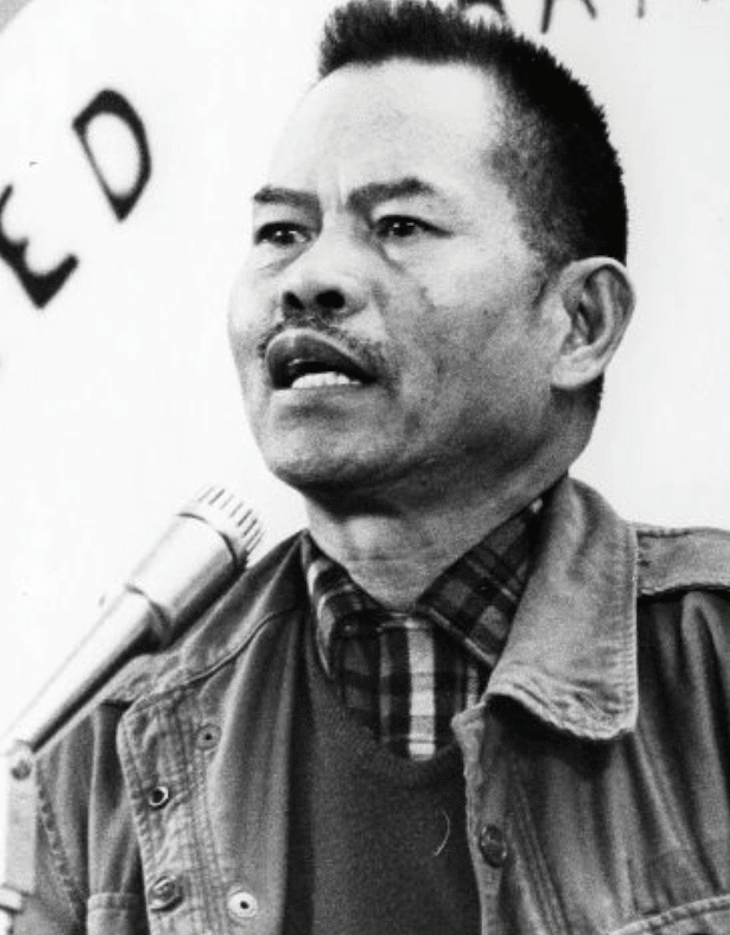
For all intents and purposes, the alliance between the Mexicans andvthe Filipinos was timely as both races were previously pitted against each other by their employers to break up strikes. Soon enough, both groups merged into the United Farm Workers (later changing its name to United Farmworkers’ Union) which is America’s pioneering agricultural union for laborers. Cesar Chavez sat as president while Itliong became vice president. Eventually, the case garnered national attention on the plight of immigrant laborers and helped to sway public sympathy towards their cause. In the end, the grape growers acceded to the workers’ request to raise their wages and the right to form their own union.
Awards Event Media
A conversation with Attorney General Rob Bonta on Larry Itliong
Q: What do you think people today have Larry to thank for?
A: To me, one of Larry Itliong’s biggest impacts and the lesson that I’ve taken to heart the most from his work is the lesson about the power of coming together — the power of solidarity.
In 1965, in the Filipino community hall in Delano, Larry Itliong, along with Philip Vera Cruz, Pete Velasco, and other manongs, led the Delano Grape Strike — to fight for better wages and improve working conditions, dignity, and respect for agricultural workers.
The strike would eventually lead to the unification of the mostly Filipino farm labor union, the Agricultural Workers Organizing Committee, with the mostly Latino union, the National Farm Workers Association.
This racial unity ushered in one of the most significant collaborations in California history, launching the California farm labor movement, and led to the creation of the now world-renowned United Farm Workers, and ending decisively, growers’ historical attempts to pit these two groups against each other.
Without Larry Itliong, it’s hard to say what would have become of the California farmworker movement — but, to this day, we see the lasting power of his work and the people who continue to stand united in the fight for dignity and respect in the workplace. They are carrying on that legacy and building on the work of those who came before them.
Q: What do you want people across the country to know about Larry?
A: At a time when farmworkers and immigrants were denied basic rights, Larry Itliong brought people together, across their differences, to advance justice — and that work and his legacy are just as important today as it was then.
As a nation of immigrants, we should never lose sight of that and of the power of solidarity. The power of everyday people coming together to create change not despite our differences but because of them.
Especially today, where those in power too often try to pit groups against each other, Manong Itliong teaches us to instead unite together. So, I want people to hear that message. Together, in solidarity, we can make a difference.
Q: Why do you think it is so important to raise awareness about Larry?
A: When we pay attention to the people behind the work and recognize their contributions, that’s when we truly see the power of the American Dream. America is the land of opportunity because people like Manong Itliong fought to make it that way. They weren’t just given their rights. They fought for them.
So, by acknowledging their efforts and making it clear that our rights weren’t just given to us, we’re recognizing that we all have the power to create change. We all have a role to play in our democracy.
When we’re raising awareness about that work, we’re reminding our diverse communities that they have a voice — no matter who they are or where they come from. And that to me is the epitome of the American Dream. Striving together for justice and the preservation of life, liberty, and the pursuit of happiness.
All of our contributions matter and we can and should continue to fight to uplift them — and make our stories known. Our stories are part of the soul and fabric of America.
Q: Is there any hope you have for the future of our country that Larry would say if he were with us today?
A: For one, I think he’d be proud of how far Filipino Americans have come and how we’ve been able to work together across racial, income, gender, and generational lines to make a difference in this country. We are a community that fights for all communities. Throughout this pandemic, Filipino Americans have stepped in and stepped up to care for all — on the frontlines providing essential care and essential services.
And our story is important — from the first Filipinos landing in the continental United States at Morro Bay over 400 years ago, to the manangs and manongs, like Larry Itliong, who led the farmworkers’ movement, to the changemakers of today fighting for racial, economic, environmental, and social justice.
Filipino Americans are now one of the largest Asian American groups in California at over 1.6 million strong and the second-largest Asian American community across the nation. So, we’re here to stay and, together, we’re making our voices heard. That’s what our democracy is all about and that’s part of what gives me hope for the future of our nation.
Q: What has been your role in launching the movement for officially recognizing the contributions of Larry Itliong?
A: I’ve had the privilege and honor of being the first Filipino American in the State Legislature and the first to hold the position of Attorney General. But none of that would have been possible without those who came before me and paved the way. Larry Itliong’s work on the ground, organizing and advocating for the rights of farmworkers and Filipino Americans, is a critical part of our story.
And, as a legislator, I was able to work with our community, other legislators, and the Governor to help tell that story through legislation like Assembly Bill 7, proclaiming October 25 to be Larry Itliong Day in the State of California. That was signed into law in 2015 — and every year since then we’ve continued to build up and strengthen that legacy here in California and across the country. Together, as part of that legacy, we continue to stand in solidarity for all working people.
